Recorded on
October 5, 2022
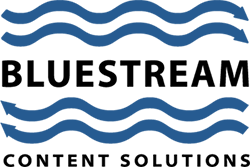
CPQ systems are just one of several business systems that can be enhanced with the content stored within your CCMS. Thomas and Rik will drill down into this with real-world examples of multiple deployments, including QAD’s own experience. They will discuss the pros and potential pitfalls of these combined systems and explore the best approach to take to maximize their success.
Presented by:
Thomas Blumer, QAD

![]()
Dr. Thomas Blumer is the Director of Knowledge Management at QAD. He has a Doctorate in Business Administration with a focus on Knowledge Transfer in M&A Integrations. In his current role, Thomas is delivering enterprise-wide Knowledge Management initiatives focused on collaborating, accelerating best practices, and leveraging internal organizational knowledge. Thomas' main focus is to provide customers, partners, and QAD employees with the right product knowledge, at the right time and at the right place.
Over the last 30 years, Thomas has worked for several Fortune 500 companies such as HP, UBS, and Sharp and implemented or enhanced knowledge base systems, subject matter expert yellow page systems, and communities of practice.

Rik Page, Bluestream.
Rik has worked with component content and document management solutions for over 20 years. He has worked with custom DTDs and Schemas, S1000D, iSpec2200, and DITA, together with various document and content management systems, including Documentum, SharePoint, XDocs, Ixiasoft, easyDITA, Astoria, and Vasont.
His practical experience ranges from high volume data capture and content creation to dynamic multichannel delivery in various industries, including banking and finance, manufacturing, central government, and education. In addition, Rik has participated in multiple consultancy projects and helped formulate innovative solutions throughout Europe and North America.
Rik is also an advocate of Documentation 4.0, a new concept reflecting the demands on content/documentation that results from moving to Industry 4.0 and ‘smart’ manufacturing.

 Fabrice Lacroix is a serial entrepreneur and a technology pioneer. He has been working for 25 years on the development of innovative solutions around search technology, content enrichment and AI. He is the founder of Fluid Topics, the leading Content Delivery Platform that reinvents how users search, read and interact with technical documentation.
Fabrice Lacroix is a serial entrepreneur and a technology pioneer. He has been working for 25 years on the development of innovative solutions around search technology, content enrichment and AI. He is the founder of Fluid Topics, the leading Content Delivery Platform that reinvents how users search, read and interact with technical documentation. 
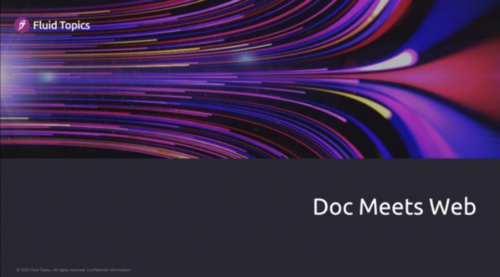
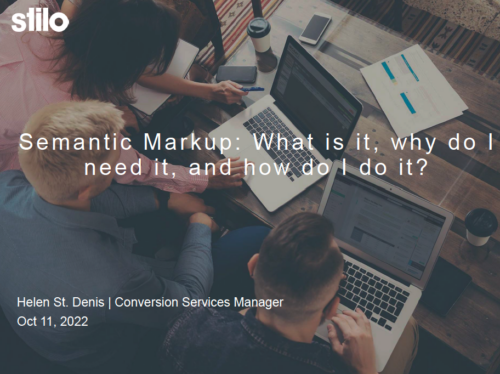

 Helen joined Stilo as a technical editor. She now works closely with Stilo Migrate customers, helping them to analyze their legacy content and configure appropriate mapping rules. She also provides Migrate customer training and support. Helen has helped Migrate customers to convert millions of pages of content to DITA and custom XML. Helen holds a Bachelor of Arts in English from St. Francis Xavier University in Antigonish, Nova Scotia, and has pursued graduate studies at Queen’s University in Kingston, Ontario. Email:
Helen joined Stilo as a technical editor. She now works closely with Stilo Migrate customers, helping them to analyze their legacy content and configure appropriate mapping rules. She also provides Migrate customer training and support. Helen has helped Migrate customers to convert millions of pages of content to DITA and custom XML. Helen holds a Bachelor of Arts in English from St. Francis Xavier University in Antigonish, Nova Scotia, and has pursued graduate studies at Queen’s University in Kingston, Ontario. Email: 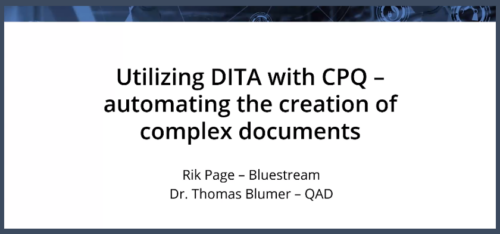
 CPQ systems are just one of several business systems that can be enhanced with the content stored within your CCMS. Thomas and Rik will drill down into this with real-world examples of multiple deployments, including QAD’s own experience. They will discuss the pros and potential pitfalls of these combined systems and explore the best approach to take to maximize their success.
Presented by:
Thomas Blumer, QAD
CPQ systems are just one of several business systems that can be enhanced with the content stored within your CCMS. Thomas and Rik will drill down into this with real-world examples of multiple deployments, including QAD’s own experience. They will discuss the pros and potential pitfalls of these combined systems and explore the best approach to take to maximize their success.
Presented by:
Thomas Blumer, QAD
 Rik Page, Bluestream.
Rik has worked with component content and document management solutions for over 20 years. He has worked with custom DTDs and Schemas, S1000D, iSpec2200, and DITA, together with various document and content management systems, including Documentum, SharePoint, XDocs, Ixiasoft, easyDITA, Astoria, and Vasont.
His practical experience ranges from high volume data capture and content creation to dynamic multichannel delivery in various industries, including banking and finance, manufacturing, central government, and education. In addition, Rik has participated in multiple consultancy projects and helped formulate innovative solutions throughout Europe and North America.
Rik is also an advocate of Documentation 4.0, a new concept reflecting the demands on content/documentation that results from moving to Industry 4.0 and ‘smart’ manufacturing.
Rik Page, Bluestream.
Rik has worked with component content and document management solutions for over 20 years. He has worked with custom DTDs and Schemas, S1000D, iSpec2200, and DITA, together with various document and content management systems, including Documentum, SharePoint, XDocs, Ixiasoft, easyDITA, Astoria, and Vasont.
His practical experience ranges from high volume data capture and content creation to dynamic multichannel delivery in various industries, including banking and finance, manufacturing, central government, and education. In addition, Rik has participated in multiple consultancy projects and helped formulate innovative solutions throughout Europe and North America.
Rik is also an advocate of Documentation 4.0, a new concept reflecting the demands on content/documentation that results from moving to Industry 4.0 and ‘smart’ manufacturing. 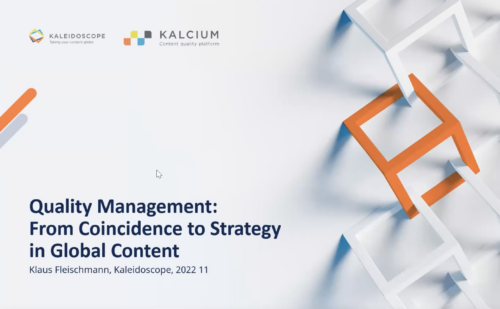

 Klaus Fleischmann studied translation and IT in Vienna, holds an MA in Conference Interpreting from Monterey, California, and a MAS in Technical Communication from Krems, Austria. In 1996, he founded Austria-based Kaleidoscope, a company implementing content, translation, and terminology management processes for internationally active companies. Kaleidoscope develops online collaboration software for enterprise-level terminology workflow, translator query management, in-country review etc., making the translation quality process comprehensible and strategically manageable. In 2007, he became CEO of Austria´s leading LSP, Eurocom Translation Services. Always active in the industry, Klaus got voted into the Gala Board of Directors in 2015 and 2017.
Klaus Fleischmann studied translation and IT in Vienna, holds an MA in Conference Interpreting from Monterey, California, and a MAS in Technical Communication from Krems, Austria. In 1996, he founded Austria-based Kaleidoscope, a company implementing content, translation, and terminology management processes for internationally active companies. Kaleidoscope develops online collaboration software for enterprise-level terminology workflow, translator query management, in-country review etc., making the translation quality process comprehensible and strategically manageable. In 2007, he became CEO of Austria´s leading LSP, Eurocom Translation Services. Always active in the industry, Klaus got voted into the Gala Board of Directors in 2015 and 2017. 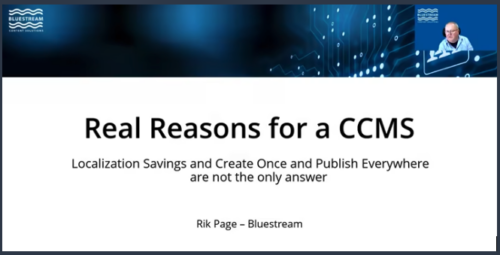
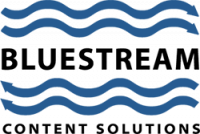
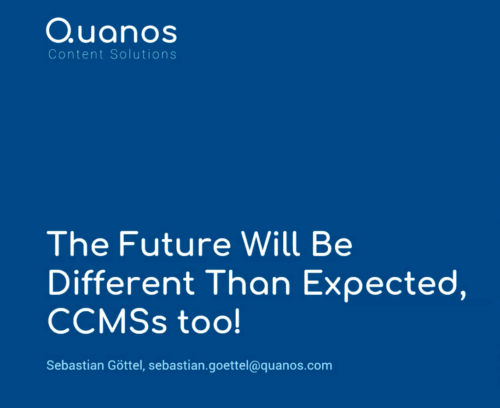

 Sebastian Göttel is Head of Marketing and Product Management at Quanos Content Solutions GmbH. The computer scientist has been involved with XML editing systems and content delivery since 1998. In the Tekom environment, he worked on version 1.0 of the iiRDS standard.
Sebastian Göttel is Head of Marketing and Product Management at Quanos Content Solutions GmbH. The computer scientist has been involved with XML editing systems and content delivery since 1998. In the Tekom environment, he worked on version 1.0 of the iiRDS standard. 

 Stefan Gentz is the Senior Worldwide Evangelist for Technical Communication at Adobe, headquartered in San Jose, California, USA. Stefan’s mission is to inspire enterprises and technical writers around the world and show how to create compelling technical communication content with the Adobe Technical Communication tools. He is also a certified Quality Management Professional (TÜV), ISO 9001 / EN 15038 auditor, ISO 31000 Risk Management expert, and Six Sigma Champion.
As a sought-after keynote speaker and moderator at conferences around the world, he travels around the globe half of the year. Besides that, he has been the European Ambassador for the Globalization and Localization Association (GALA) for many years, a member of the tekom Conference Advisory Board for several years, and a founding member of the tekom
Stefan Gentz is the Senior Worldwide Evangelist for Technical Communication at Adobe, headquartered in San Jose, California, USA. Stefan’s mission is to inspire enterprises and technical writers around the world and show how to create compelling technical communication content with the Adobe Technical Communication tools. He is also a certified Quality Management Professional (TÜV), ISO 9001 / EN 15038 auditor, ISO 31000 Risk Management expert, and Six Sigma Champion.
As a sought-after keynote speaker and moderator at conferences around the world, he travels around the globe half of the year. Besides that, he has been the European Ambassador for the Globalization and Localization Association (GALA) for many years, a member of the tekom Conference Advisory Board for several years, and a founding member of the tekom 
 Jacob Brennan is a Technical Sales Product Specialist at Stilo. He works with Stilo Migrate customers and aids in converting their legacy content to DITA. Jacob is a recent graduate from the University of Ottawa holding a BASc. in Mechanical Engineering and a BSc. in Computing Technology.
Jacob Brennan is a Technical Sales Product Specialist at Stilo. He works with Stilo Migrate customers and aids in converting their legacy content to DITA. Jacob is a recent graduate from the University of Ottawa holding a BASc. in Mechanical Engineering and a BSc. in Computing Technology. 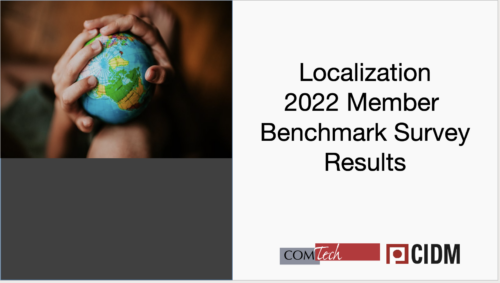

 Dawn Stevens, President, Comtech Services and Director of CIDM has 28 years of practical experience in virtually every role within a documentation and training department, including project management, instructional design, writing, editing, and multimedia programming. Dawn is the perfect advisor to identify and remove the challenges you face in producing usable, technical information and training content. With both engineering and technical communication degrees, Dawn combines her solid technical foundation with strong writing and design skills to lead our team of consultants and specialists in providing the expertise you need.
Dawn Stevens, President, Comtech Services and Director of CIDM has 28 years of practical experience in virtually every role within a documentation and training department, including project management, instructional design, writing, editing, and multimedia programming. Dawn is the perfect advisor to identify and remove the challenges you face in producing usable, technical information and training content. With both engineering and technical communication degrees, Dawn combines her solid technical foundation with strong writing and design skills to lead our team of consultants and specialists in providing the expertise you need.
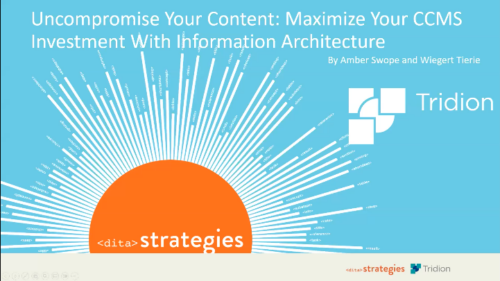


 Amber Swope is an internationally recognized Information Architect, Darwin Information Typing Architecture (DITA) expert, and information architecture (IA) consultant. With over 20 years of information development experience and 15 years of DITA expertise, Amber specializes in helping organizations create opportunity through IA. She helps teams build scalable IA solutions to future-enable their content and empowers team members to advance their architecture as it evolves to meet new business needs.
Amber Swope is an internationally recognized Information Architect, Darwin Information Typing Architecture (DITA) expert, and information architecture (IA) consultant. With over 20 years of information development experience and 15 years of DITA expertise, Amber specializes in helping organizations create opportunity through IA. She helps teams build scalable IA solutions to future-enable their content and empowers team members to advance their architecture as it evolves to meet new business needs.
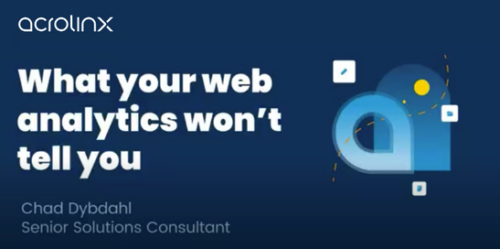


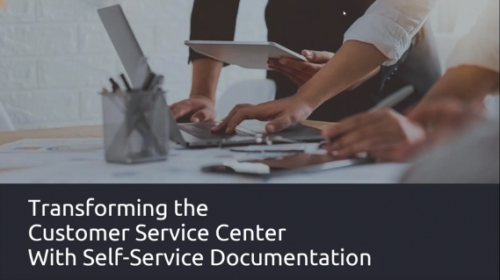
 Fabrice Lacroix is a serial entrepreneur and a technology pioneer. He has been working for 25 years on the development of innovative solutions around search technology, content enrichment and AI. He is the founder of Fluid Topics, the leading Content Delivery Platform that reinvents how users search, read and interact with technical documentation.
Fabrice Lacroix is a serial entrepreneur and a technology pioneer. He has been working for 25 years on the development of innovative solutions around search technology, content enrichment and AI. He is the founder of Fluid Topics, the leading Content Delivery Platform that reinvents how users search, read and interact with technical documentation.
 Alex Masycheff is the CEO of Intuillion Ltd. (
Alex Masycheff is the CEO of Intuillion Ltd. (